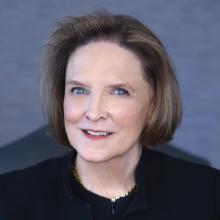The young man came from Ethiopia to pursue higher education.
But soon after he arrived in the U.S., a phone call left him without a country—or a family.
His father—a member of a coalition that fights for the rights of ethnic minorities—was believed to have been murdered by members of the government. His mother and sibling had been kidnapped, and no one knew where they might be.
Essentially orphaned in an utterly unfamiliar place, he found hope through a friend— specifically, a connection to the Immigration Law Clinic at Case Western Reserve University School of Law. The students there were fully prepared to help him file an application for asylum, which protected him from being returned to a potentially lethal situation.
His case is one of dozens that the clinic’s students and faculty handle every year. It’s also an example of the experiential learning opportunities Case Western Reserve law students have.
Fifty-five years ago, Austin Fragomen, JD (LAW ’68), was one of those students: He founded the Case Western Reserve Journal of International Law and earned an award for providing the most pro bono legal services across the school. Today, the founder of one of the world’s largest immigration law firms—Fragomen, Del Rey, Bernsen & Loewy—continues to shape international law practice at the university.
Through a $1 million gift, Fragomen and his wife, Gwendolyn Robosson Fragomen, JD, established the Fragomen Distinguished Practitioner position—a role dedicated to advancing the work of the law school’s Immigration Law Clinic. The clinic’s director, Aleksandar Cuic, JD, is confident such a gift can make an immeasurable—and hopefully immediate—impact. As director since 2016, Cuic has overseen 50 students who, in turn, have helped change the lives of more than 120 clients.
“Ultimately, this gift is going to go a long way in terms of growing the clinic and taking it to the next level,” Cuic said. “In Cleveland, we have a large immigrant population with not a lot of pro bono resources. This clinic can truly help make a difference for them.”
Originally published in the winter 2024 issue of Forward Thinking magazine



